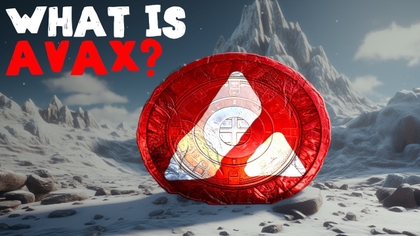Stop overpaying - start transferring money with Ogvio. Sign up, invite friends & grab Rewards now! 🎁
Stellar CEO Calls for Stablecoin Regulation to Boost Dollar Dominance
Stellar CEO claims that if the United States wants "a strong US dollar globally, a USD stablecoin is the way to see that happen.”
Increasing regulatory scrutiny on the crypto industry in the United States and the weakening dollar forces experts to search for ways to strengthen either one or both sectors.
In light of these considerations, Stellar's CEO, Denelle Dixon, believes that regulating stablecoins could offer a solution.

Did you know?
Subscribe - We publish new crypto explainer videos every week!
What is AVAX? (Avalanche Network Explained With Animations)


Stellar is a decentralized cross-border payments network fueled by the Stellar (XLM) token. It was founded as a modified fork from Ripple's codebase in 2014.
In an April 11th Bloomberg interview, Stellar Development Foundation CEO shared her thoughts on the potential impact of regulating dollar-pegged digital assets in the US.
Dixon expressed confidence that some form of stablecoin regulation could emerge in the US by the end of the year, stating that US regulators “want to set the standard.”
Stellar CEO suggested that if Americans "want a strong US dollar globally, a USD stablecoin is the way to see that happen.”
While President Joe Biden's administration has already recognized the need for a stablecoin regulatory framework, Dixon emphasized that it is up to Congress to push the matter forward.
If we don’t do something in the US, we’re going to be in this bifurcated world where we have legislation outside the US that’s friendlier to crypto. There will be companies outside the US, and there will still be the issue that US consumers will want to leverage this technology.
Dixon's optimism about stablecoin regulation stems from the belief that the US doesn't “have a choice.” She argued that the emphasis should be on the utility and value delivered to users rather than the technology itself.
In light of the Federal Reserve's plans to launch central bank digital currency (CBDC), several politicians and crypto players shared their opinions about the digital dollar. In particular, several politicians stated that the digital dollar could pose a threat to the privacy of US citizens.











![How to Transfer Money Without Fees? [Animated Tips 2025] How to Transfer Money Without Fees? [Animated Tips 2025]](https://assets.bitdegree.org/youtube/crypto-finally-explained/how-to-transfer-money-without-fees-animated-tips-2025.jpg?tr=w-400)










